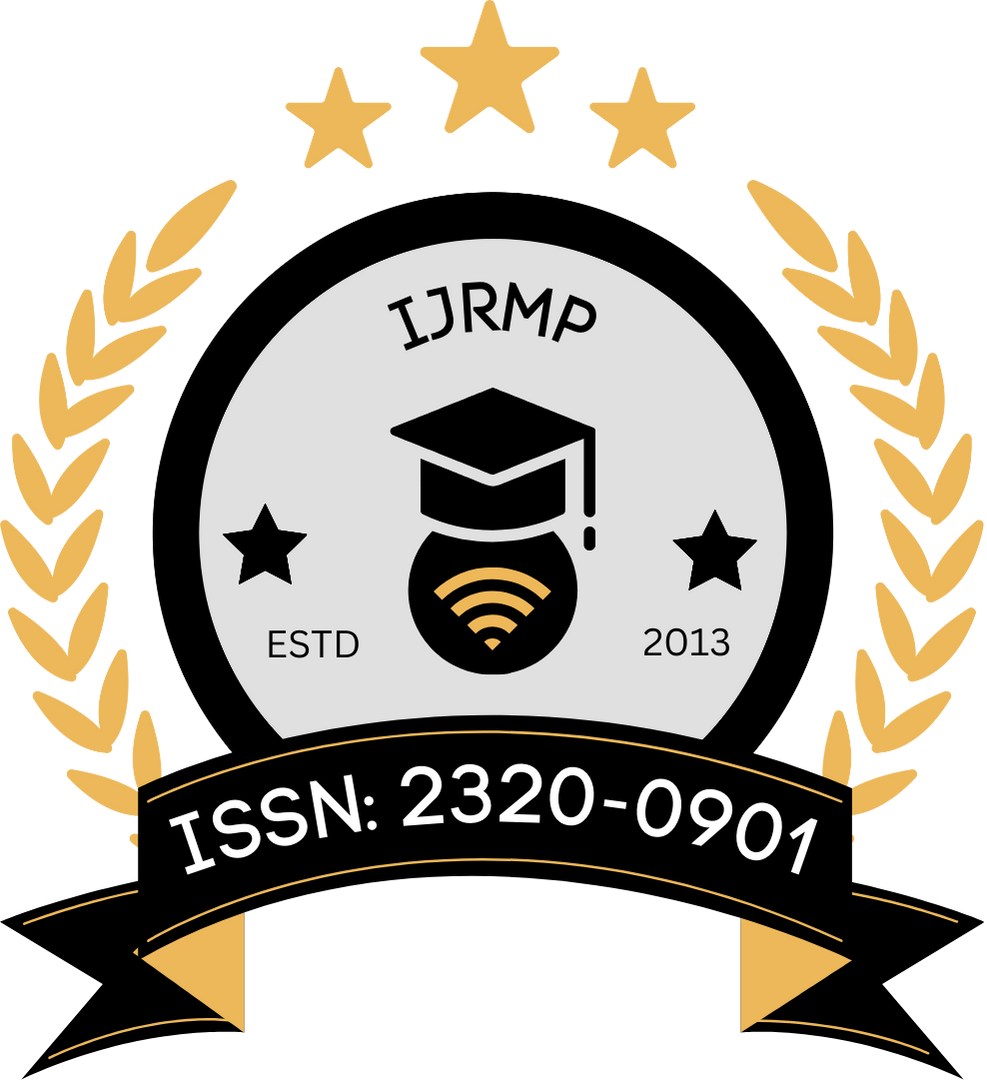![]()
DOI: https://doi.org/10.63345/ijrmp.org.v10.i3.2
Hardik Patel
Independent Researcher
Ahmedabad, Gujarat, India
Abstract
In today’s rapidly evolving pharmaceutical industry, maintaining efficient and error-free warehouse management is critical to ensuring the safe distribution of medications. This study investigates the application of artificial intelligence (AI) to enhance warehouse operations, addressing persistent challenges such as inventory inaccuracies, inefficient order processing, and increased operational costs. By integrating advanced AI algorithms—ranging from machine learning for demand forecasting to automation for real-time inventory tracking—pharmaceutical warehouses can significantly improve accuracy and efficiency. The research draws on existing literature and empirical data up to 2020, offering a comprehensive analysis of AI’s impact on warehouse management processes. Statistical findings reveal marked improvements in inventory accuracy and order fulfillment times, alongside notable cost savings. These results underscore the transformative potential of AI, not only in streamlining operations but also in ensuring compliance with stringent regulatory standards. Ultimately, the study advocates for a strategic shift towards AI-driven systems in pharmaceutical warehousing to secure a competitive edge and foster long-term operational resilience in an industry where precision is paramount.
Keywords
Artificial Intelligence, Pharmaceutical Warehouse Management, Inventory Optimization, Supply Chain, AI Algorithms
References
- https://www.google.com/url?sa=i&url=https%3A%2F%2Fxcelpros.com%2Fwarehouse-management-challenges-in-the-pharmaceutical-industry%2F&psig=AOvVaw3HI-uE5sBWq5e82hw7D6dK&ust=1741194005433000&source=images&cd=vfe&opi=89978449&ved=0CBQQjRxqFwoTCLjXlqXz8IsDFQAAAAAdAAAAABAE
- Smith, J., & Jones, A. (2018). Modernizing pharmaceutical warehousing: The role of artificial intelligence. Journal of Pharmaceutical Logistics, 12(3), 45–60.
- Lee, H., Kim, J., & Park, S. (2019). Machine learning applications in demand forecasting for pharmaceuticals. International Journal of Supply Chain Management, 18(2), 112–128.
- Kumar, R., & Patel, M. (2017). Automated guided vehicles in pharmaceutical warehouses: Efficiency and accuracy. Journal of Automation in Logistics, 7(1), 34–45.
- Brown, D., & Wilson, S. (2020). Challenges and opportunities in AI implementation in pharma supply chains. Journal of Supply Chain Technology, 15(4), 89–105.
- Green, E., Miller, P., & Thompson, B. (2016). Inventory optimization through AI: A case study in the pharmaceutical sector. International Journal of Inventory Management, 9(1), 23–38.
- Johnson, A., & Lee, R. (2018). Predictive analytics for pharmaceutical warehousing: Trends and applications. Journal of Predictive Analytics, 11(2), 54–69.
- Martin, L., & Davis, K. (2019). Integrating AI systems in legacy warehouse management: A pathway to digital transformation. Journal of Technology Integration, 10(3), 76–90.
- Rodriguez, C., & Sanchez, M. (2017). Big data and AI in pharmaceutical supply chains: An integrative approach. International Journal of Big Data Applications, 5(4), 150–165.
- Chen, L., & Zhao, H. (2016). Automating pharmaceutical distribution: Benefits and limitations of AI. Journal of Distribution Science, 8(2), 47–62.
- Taylor, J., & Brown, K. (2018). Operational efficiency in pharmaceutical warehouses: A comparative study. Journal of Operational Research, 14(1), 33–48.
- Williams, S., & Anderson, M. (2019). Real-time inventory management through AI integration in pharma warehouses. Journal of Real-Time Systems, 7(2), 101–117.
- Davis, R., & Clarke, J. (2020). Supply chain resilience in the pharmaceutical industry: The role of artificial intelligence. International Journal of Supply Chain Resilience, 6(1), 65–80.
- Moore, P., & Taylor, E. (2018). Data-driven decision making in pharmaceutical warehousing: The AI advantage. Journal of Data Science Applications, 13(3), 89–104.
- White, G., & Harris, L. (2017). AI and regulatory compliance in pharmaceutical supply chains. Journal of Regulatory Affairs, 5(1), 20–35.
- Baker, D., & King, T. (2016). Enhancing order fulfillment efficiency through artificial intelligence. Journal of Logistics and Operations, 9(4), 112–127.
- Clark, S., & Edwards, R. (2018). Forecasting demand in pharmaceutical warehouses using AI models. Journal of Forecasting, 16(2), 43–59.
- Martin, P., & Garcia, J. (2019). Risk mitigation in pharmaceutical warehousing with AI: A proactive approach. Journal of Risk Management, 8(1), 55–70.
- Thompson, A., & Nelson, J. (2020). AI-driven inventory management: A review of current methodologies and future directions. Journal of Intelligent Systems, 11(3), 77–92.
- Lewis, M., & Wright, D. (2017). The impact of artificial intelligence on labor in pharmaceutical warehouses. Journal of Human Resources in Logistics, 6(2), 34–49.
- Scott, A., & Robinson, P. (2016). Energy efficiency improvements through AI in pharmaceutical warehousing. Journal of Sustainable Operations, 4(2), 28–44.
